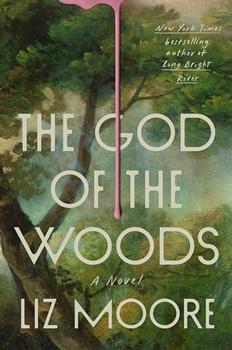Author Biography | Interview | Books by this Author | Read-Alikes

Karen Joy Fowler is the New York Times bestselling author of six novels and three short story collections. Her 2004 novel, The Jane Austen Book Club, spent thirteen weeks on the New York Times bestsellers list and was a New York Times Notable Book. Fowler's previous novel, Sister Noon, was a finalist for the 2001 PEN/Faulkner Award for fiction. Her debut novel, Sarah Canary, won the Commonwealth medal for best first novel by a Californian, was listed for the Irish Times International Fiction Prize as well as the Bay Area Book Reviewers Prize, and was a New York Times Notable Book. Fowler's short story collection Black Glass won the World Fantasy Award in 1999, and her collection What I Didn't See won the World Fantasy Award in 2011. Her most recent novel We Are All Completely Beside Ourselves, won the 2014 PEN/Faulkner Award for fiction and was short-listed for the 2014 Man Booker Prize. Her new novel Booth will publish in March 2022.
She is the co-founder of the Otherwise Award and the current president of the Clarion Foundation (also known as Clarion San Diego). Fowler and her husband, who have two grown children and seven grandchildren, live in Santa Cruz, California. Fowler also supports a chimp named Caesar who lives at the Tacugama Chimpanzee Sanctuary in Sierra Leone.
Karen Joy Fowler's website
This bio was last updated on 02/26/2022. In a perfect world, we would like to keep all of BookBrowse's biographies up to date, but with many thousands of lives to keep track of it's simply impossible to do. So, if the date of this bio is not recent, you may wish to do an internet search for a more current source, such as the author's website or social media presence. If you are the author or publisher and would like us to update this biography, send the complete text and we will replace the old with the new.
Booth
You touch upon this in your author's note: What did you want to explore in a book in which John Wilkes Booth is a prominent figure?
The United States is a very complicated place with regard to guns. A whole lot of people share responsibility for this dysfunctionality–those founders who were unclear when writing the Second Amendment, those people who make guns and also those who buy them, voting with their dollars to keep the whole bloody business lucrative, the NRA and their politicians, and, of course, the shooters.
I am not the first writer to wonder if the families of the shooters should be added to that guilty list (and clearly the answer is sometimes yes and sometimes no). But this is what made me think there might be a novel in the brothers and sisters of John Wilkes Booth.
Why did you choose to tell this story through the perspectives of Rosalie, Edwin, and Asia —and notably not through John's?
Wouldn't it be swell, I thought, if we felt the same fascination for people who don't kill presidents as we feel for those who do? Edwin, in particular, has a well-documented life filled with color and adventure, from the Wild West coast of the Gold Rush to the theaters of New York City.
Asia's difficult ...




Your guide toexceptional books
BookBrowse seeks out and recommends the best in contemporary fiction and nonfiction—books that not only engage and entertain but also deepen our understanding of ourselves and the world around us.